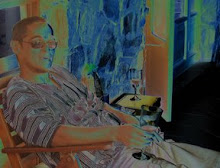Thursday, 1 January 2015
The other side of the Tanzanian Shilling...
It’s the rainy season and everything is lush. The most
prominent feature of the landscape however is the lack of fencing. Closer to clusters
of homes – mostly mud huts with the structural sticks showing through the walls
– the land is tilled and planted or being prepared to receive a combination of
the various subsistence crops. Larger plantations are worked by co-operatives
of local farmers who in some instances are exporting their tea or coffee, but
all are able to varying degrees to sustain themselves from the land. Their land
and their birth right.
Again, along the streets the crafters and traders are busy:
mostly selling Tanzanian products including T-shirts that are being manufactured
and printed locally and not made in China… like the road network. The ugly face
of poverty is prevalent but there is an industriousness – a wilful and
determined drive to survive and beat the odds. And ‘well-off’ implies having
the means to simply generate an income without the ugliness of excess. That
doesn’t mean that consumerism hasn’t left its mark as the streets are lined
with litter and plastic that seems to have become a permanent part of both the
urban and rural landscape.
We slept over in a place called Same but pronounced Sami.
Sometimes the joy of a comfortable bed is redundant when work finishes late and
starts early; last to bed and first to rise and all of that shit… no birds, no
worms. Another early morning and another treacherous road through beautiful
scenery; with overloaded trucks and the passing smell of brakes or clutch burning
and the inevitable avoidable accidents. Jack-knifes, over-turns, head-ons and
drivers seemingly falling asleep on sharp bends resulting in trucks and loads
hanging precariously from trees above lush and welcoming ravines.
But then there are also the stories about Chogela who cycled
from Arusha to Ruaha to negotiate with the chief for land to establish a camp
just outside the national park from where he runs tours; and Simba who studied
medicine in Germany to return to Iringa where he is planting a medicinal garden
just alongside the Isimila stone-age site on land given him by the
municipality. As he proudly showed me around the property, he spoke
optimistically of the formation of the East African Union and his own plans to
open a lodge and develop a cultural tour of the region.
The roads may be fucked but the people are not deterred…
Subscribe to:
Post Comments (Atom)














No comments:
Post a Comment